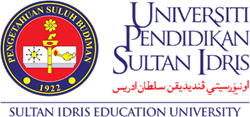A personal development framework on core values for catholic school teachers
DOI:
https://doi.org/10.37134/jrpptte.vol14.1.2.2024Keywords:
Catholic teachers’ core values, personal development, personal development framework on core valuesAbstract
This study identified the basic education Catholic School teachers’ personal lived and desired core values as well as the challenges faced in living out those core values and how they faced those challenges. It probed how teachers envision their school community if core values are lived out and recognized the school programs, activities, and support needed to enhance their core values. Phenomenological research was conducted that applied Appreciative Inquiry and validated online interviews were utilized for data gathering which was participated by twenty-five (25) teachers and five (5) principals from five Catholic schools in Metro Manila. The results showed that the most lived core values are being Maka-Diyos (Love of God), Makatao (Love of Others), Makakalikasan (Love of Creation), Makabansa (Love of Country), and Mahusay (Excellence). In living out these core values, they experienced challenges, particularly in managing their human nature, conflicting values with others, as well as time, energy, and resource management. If core values are fully lived out, the teachers envision their school to be a happy community with a healthy work culture in attaining its vision, mission, and goals for the transformation of society. To enhance core values, the teachers recommended spiritual formation, mental health programs, ongoing formation, community building, community extension, staffing, succession, coaching, mentoring, recognition programs, environmental, and nationalism, with emphasis on proper planning, organizing, leading, and controlling. Based on these data, the 4-B Personal Development Framework on Core Values for Catholic School Teachers was designed which highlights the importance of Being, Becoming, Building, and Balancing in enhancing the teachers’ core values.
Downloads
References
Ariola, M. M. (2006). Principles and methods of research. Rex Book Store, Inc.
Arthur, J., Davison, J., & Lewis, M. (2005). Professional values and practice: Achieving the standards for QTS. Routledge. https://doi.org/kr6g
Bateman, T. S., & Snell, S. (2013). Management (3rd ed.). McGraw-Hill Irwin.
Brage, T., & Lövkrona, I. (Eds.). (2016). Core values work in academia. Lund University.
Bredeson, P. V. (2006). The school principal's role in teacher professional development. Journal of In-Service Education, 26(2), 385-401. https://doi.org/cdw3sh
Catholic Educational Association of the Philippines. (2017). About us. https://www.ceap.org.ph/who-we-are/about-ceap
Cooperrider, D. L., Whitney, D., & Stavros, J. M. (2008). Appreciative inquiry handbook: For leaders of change (2nd ed.). Berrett-Koehler Publishers.
Creswell, J. W. (2008). Educational research: Planning, conducting, and evaluating quantitative and qualitative research (3rd ed.). Pearson Merill Prentice Hall.
Fraenkel, J. R., Wallen, N. E., & Hyun, H. H. (2012). How to design and evaluate research in education (8th ed.). McGraw-Hill.
Gökçe, A. T. (2021). Core values in education from the perspective of future educators. SAGE Open, 11(2), 1-14. https://doi.org/mdqc
Holland, P. E. (2008). The principal’s role in teacher development. SRATE Journal, 17(1), 16-24.
Houston, T. (2023). Servant leadership: Practices, experiences, and effective ways to mitigate barriers. In S. K. Dhiman & G. E. Roberts (Eds.), The Palgrave handbook of servant leadership (pp. 1307-1325). Palgrave Macmilan, Cham. https://doi.org/mdp8
Jackson, R. R. (2020, December 1). Co-creating your school’s core values. Association for Supervision and Curriculum Development. https://www.ascd.org/el/articles/co-creating-your-schools-core-values
Lampton, J. A. (2020, October 1). Core values are organizational pillars. Strategic Finance. https://www.sfmagazine.com/articles/2020/october/core-values-are-organizational-pillars/?psso=true
Laverty, S. M. (2003). Hermeneutic phenomenology and phenomenology: A comparison of historical and methodological considerations. International Journal of Qualitative Methods, 2(3), 21-35. https://doi.org/gcd5kq
Lloyd, R., & Aho, W. (2020). The four functions of management: An essential guide to management principles. Fort Hays State University. https://doi.org/mdp9
Neubauer, B. E., Witkop, C. T., & Varpio, L. (2019). How phenomenology can help us learn from the experiences of others. Journal of the Netherlands Association of Medical Education, 8(2), 90-97. https://doi.org/ggndrx
Peschke, K.-H. (2012). Christian ethics: Moral theology in light of vatican II: Vol. 2. Special Moral Theology. Wipf and Stock Publishers.
Pope Francis. (2014). The people wish to see Jesus: Reflections for those who teach. Crossroad Publishing.
Republic Act, No. 8491. (1998). https://www.officialgazette.gov.ph/1998/02/12/republic-act-no-8491/
Republic Act, No. 9155. (2001). https://www.officialgazette.gov.ph/2001/08/11/republic-act-no-9155/
Republic of the Philippines Department of Education. (2013). Our department of education vision, mission and core values (DepEd Order No. 36, s. 2013).
Republic of the Philippines Department of Education. (2017). National adoption and implementation of the Philippine professional standards for teachers (DepEd Order No. 42, s. 2017).
Teherani, A., Martimianakis, T., Stenfors-Hayes, T., & Wadhwa, A. (2015). Choosing a qualitative research approach. Journal of Graduate Medical Education, 7(4), 669-670. https://doi.org/f3t97t
The Constitutional of the Republic of the Philippines. (1987). https://www.officialgazette.gov.ph
/constitutions/1987-constitution/
Tusin, L. F. (1999). Deciding to teach. In R. P. Lipka & T. M. Brinthaupt (Eds.), The role of self in teacher development (pp. 11-35). State University of New York Press.
Wajeha Thabit Al-Ani. (2014). Core values matrix of the philosophy of basic education in Oman (PBEO). Athens Journal of Education, 1(2), 167-182. https://doi.org/mdp6
Downloads
Published
How to Cite
Issue
Section
License
Copyright (c) 2024 Maribel Hernandez Castillo, Caridad N. Barrameda

This work is licensed under a Creative Commons Attribution-NonCommercial-ShareAlike 4.0 International License.




